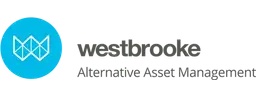Westbrooke Yield Plus just achieved its strongest annual performance since inception, showing why private debt is becoming an increasingly popular asset class for investors seeking higher yields.
Over the past 12 months, an investment in the JSE Top 40 would’ve lost roughly 4% of its value as measured in rands. It’s even worse when expressed in dollars, with the rand having depreciated from R17.90 to R19.00 against the dollar in the past year. In global terms, the wealth of South Africans was eroded last year, just as we’ve seen in years prior.
This is a very serious problem for local investors. South Africa’s economic and political future is uncertain to say the least. Although risk is part of any wealth creation journey, the problem is that the returns simply aren’t coming through to make up for the risks.
This drives South African corporates and individual investors to look offshore for opportunities. Global public markets (like the Nasdaq) are exceptionally volatile, especially in the technology sector and other “hot money” areas of the market. This means a bumpy ride, which isn’t suitable for all investors. Even for those with higher risk tolerance, a sensible approach to portfolio construction would include some lower risk assets that carry appealing yields.
Thankfully, in this environment of higher interest rates, attractive yields still exist. In 2023, Westbrooke Yield Plus enjoyed its strongest performance since inception, with a net investor return of 9.2%. That return is measured in GBP, so the rand return was even stronger.
To achieve yields of this level in so-called “hard currency” demonstrates the value of looking beyond equity and bond exposures.
Why do equities tend to underperform when rates move higher?
When interest rates are sitting at relatively high levels, equities tend to deliver disappointing results to investors. This is because of two major factors.
- The first is that debt costs go up, so there’s simply more economic value flowing to lenders than before. Equity holders are getting a slice of a smaller pie. To make matters worse, higher rates are often due to elevated levels of inflation. This leads to enlarged balance sheets and a need to raise funding for these balance sheets, often from banks. This is why bank earnings tend to improve during these times and corporate earnings come under pressure as rates move higher.
- The second is that higher yields drive a higher required rate of return, which means equity valuations come under pressure. The impact isn’t felt equally across all companies, as those with strong current cash flows are less severely impacted than growth stocks that are typically valued based on cash flows to be earned several years in the future. This drives substantial volatility in markets that have a heavy tilt towards growth stocks, like the US market.
Do bonds make up for this?
Government bonds are the traditional source of diversification and yield in balanced portfolios. This doesn’t mean that capital values are safe – far from it, in fact. When rates are volatile, bond values can change significantly. The only way a bond investor has reasonable certainty over returns is by holding a bond until maturity, which means locking in the capital for several years. If liquidity is needed before then, the investor is taking significant risk on the pricing of the bond.
To add to these challenges, government bonds pay a lower yield than private debt funds. This is a function of risk, as the basic principle in a stable market is that the government is the lowest risk borrower around. UK 10-year bond yields are currently sitting at just over 4%, which happens to be very similar to the yields on US 10-year bonds at the moment.
The question for an investor is whether this yield is an attractive enough reward for locking money up for 10 years or facing substantial risk to capital values. Westbrooke Yield Plus and its return of 9.2% gives food for thought, particularly as it has defined liquidity mechanisms as well. The fund targets a return of cash plus 5% to 7% per annum, with cash defined as the Bank of England Base Rate. Over the course of 2023, that base rate increased from 3.50% to 5.25%. This means a targeted return well in excess of what government bonds are offering.
These are lucrative yields for investors, particularly measured in pounds sterling rather than rands. Of course, assessing this return requires a proper understanding of the risks in private debt funds like Westbrooke Yield Plus.
A portfolio of private debt exposure
To achieve these yields, Westbrooke Yield Plus lends to a portfolio of private companies. The key here is to achieve appealing risk-weighted returns, but mitigate private debt exposure. Banks are generally not able to service this market effectively, creating an opportunity for a private fund to step in and make selected loans to private opportunities that meet the requirements.
- The fund currently has around 48 underlying loans, with a 56% weighted average loan-to-value in the underlying businesses. No individual loan exceeds 7.5% of the fund. As at the end of December 2023, there were no loans in default and there was one real estate loan on the watch list, representing 0.3% of the net asset value of the fund. This is where loan coverage is essential, as well as the underlying commercial terms of the deal. In cases where loans do end up in default, private debt funds aim to have sufficient loan-to-value coverage and other protections to recover all or most of the loan.
- The average weighted loan term in the fund is currently 22 months, with almost half of the loans in the fund maturing during the next year. This short-term nature of the debt is important to balance the risk-return characteristics. Finding enough high-quality opportunities can therefore be a challenge, requiring a strong team on the ground that understands the market. Westbrooke addresses this by having experienced resources in the UK who manage the portfolio and execute transactions.
- In terms of sector exposure, 70% of the portfolio is real estate backed and 30% is corporate backed. Within the real estate portfolio, commercial property is nearly half of the exposure, with hospitality and mixed-use contributing 16% and 20% respectively. The rest lies in residential and student properties. This mix of exposure is important in managing the risks in the fund.
Can the strong returns continue?
Naturally, there are no crystal balls here. Any investment has elements of risk and this is no different. Importantly though, it’s possible to look at the current macroeconomic situation and form a view on the near-term rate cycle.
After much exuberance in equity markets about the potential for rate cuts as early as next month, expectations have had to come back down to earth. Inflationary risks are still present and the general sentiment in the market is one of “higher for longer” when it comes to rates. For private debt funds that properly manage their risks, this is good news as it suggests another year of appealing returns could be ahead.
To manage the risk of a decrease in rates in the latter part of this year, Westbrooke Yield Plus is seeking to increase the proportion of fixed rate loans in the medium term. Ideally, a fund wants to have floating rate loans as rates increase and fixed rate loans as they decrease.
Perhaps most importantly, the interest rate volatility continues to create a dealmaking environment that rewards the information asymmetry that is generated from extensive experience and relationships in the UK market. With the existing book in good shape and market conditions continuing to offer favourable opportunities, 2023’s record year is a strong foundation for investors to be rewarded once more in 2024.
Westbrooke is currently accepting trades for the quarter ending March 2024, with applications closing on the 27th.
To learn more or invest, visit www.westbrooke.com/yield-plus or contact their team on info@westbrooke.com
Founded in 2004, and with offices in South Africa, the UK and the USA, Westbrooke is a multi-asset, multi-strategy manager of alternative investment funds and co-investment platforms. Our purpose is to preserve and compound our clients’ wealth to cement their future prosperity.





